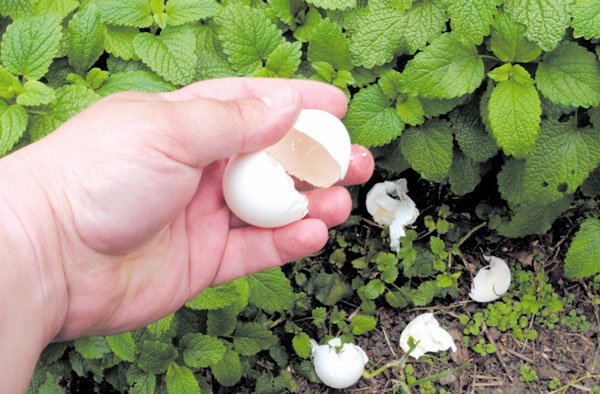Lawn care products line the shelves of every nursery and
discount retailer’s garden center, but the secret to protecting
plants could be sitting right in the kitchen. Best of all, these
time-tested remedies are organic, non-toxic alternatives to the
harsher chemicals available in garden centers.
Lawn care products line the shelves of every nursery and discount retailer’s garden center, but the secret to protecting plants could be sitting right in the kitchen. Best of all, these time-tested remedies are organic, non-toxic alternatives to the harsher chemicals available in garden centers.
Bugs and wildlife, like annoying relatives, can be deterred by a few simple changes designed to decrease their comfort level on your home turf, and often with items that are anything but expensive.
For getting rid of the persistent problem of slugs and snails, Debbie Barncord, manager of Garden Accents in Gilroy, recommends scattering eggshells throughout flowerbeds or placing a shallow plate or pie tin of beer in the vicinity of susceptible plants.
“The snails and slugs are attracted to the beer because it’s got sugar in it, but when they drink it, they die,” said Barncord.
If homeowners fear these kitchen remedies will lead to unsightly flower boxes, soil mixers are always an option, according to Randy Lanke, manager of Red Roots Garden Company, formerly known as Central Coast Nursery, in Morgan Hill.
“You can use really coarse material like decomposed granite,” said Lanke. “They don’t like hard, sharp surfaces, so that’s some really good effect there. ”
Lanke also recommends the use of diatomaceous earth in persistently problematic flowerbeds. Made from the fossilized shells of microscopic algae called diatoms, the sharp silica rubs against the underbellies of invertebrates like snails and slugs, causing cuts and rapid dehydration, said Lanke.
“Something with pyrethrin – it’s a natural poison that’s found in a member of the chrysanthemum family – is a natural poison, but it only affects invertebrates, so it’s safe around kids and animals,” said Lanke. “Within 12 to 24 hours it totally dissipates.”
The most common type of garden pest, a sucking insect, is slightly more difficult to deter.
Bugs in this category, such as aphids, mealy bugs and scale are more difficult to get rid of, but a solution containing one teaspoon of dish soap with water mixed in a spray bottle will help kill off the aphids without hurting plants, said Barncord.
These bugs are generally found on new growth, areas where the plant is pumping plenty of resources, but hasn’t developed the natural defense to ward off these attackers yet.
“Growth can be stunted if they’re attacking,” said Lanke. It doesn’t sound like a big deal, but it would be like if you were attacked by a swarm of mosquitoes. If you had enough of them bite you, it might weaken you by taking too much of your blood. Growth can be stunted to the parts of the plant.”
It may be difficult to rid a plant of these pests once they have infested the area, but the dish soap routine can minimize their presence, and several lawn and garden stores also carry beneficial insects, like praying mantis’ and ladybugs, which will devour the little critters.
And when Fifi from next door digs up or defecates in the flower garden, she can do just as much damage as any bug. To keep dogs from taking advantage of your petunias, disinvite their senses.
“I do know that people have used chili powder if the dog is urinating or defecating in a certain area and that irritates their nose,” said Barncord. “We carry a natural powder of chili powder and garlic that you just have to apply pretty often, so I know it works.”
The powder’s scent is washed back into the soil each time the sprinkled area is watered, so Barncord recommends using the powder as a training tool, not a lifelong item.
A rumor persists in the South Valley that placing jugs of water on a lawn can also keep dogs from piddling where they shouldn’t, but garden experts find the idea dubious.
“I don’t know,” said Lanke. “That would be pretty unsightly anyway.”













